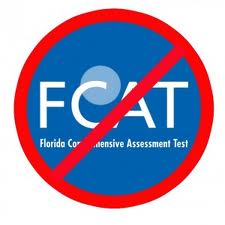Editor’s note: This post was submitted by the Coalition of McKay Scholarship Schools.
 In a recent “Florida Roundup” post, redefinED reported that a new study from the Fordham Institute “finds that mandated testing – and even public reporting of test results – isn’t that big a concern for private schools worried about government regs tied to vouchers and tax credit scholarships.”
In a recent “Florida Roundup” post, redefinED reported that a new study from the Fordham Institute “finds that mandated testing – and even public reporting of test results – isn’t that big a concern for private schools worried about government regs tied to vouchers and tax credit scholarships.”
The Coalition of McKay Scholarship Schools, a volunteer organization of private schools participating in the McKay Scholarship Program, decided to take a survey and determine whether this research finding held true for Florida private schools. The findings in Florida were polar opposite from the Fordham Institute, which did not survey schools in Florida but concentrated on schools in Indiana, Ohio, and Wisconsin.
The Coalition sent a survey to the 1,155 participating McKay Scholarship schools in February. It received 474 responses, representing approximately 40 percent of the McKay schools. Results indicate that 1) nearly all of the schools are conducting norm-referenced assessments of their students; 2) these education professionals do not believe the FCAT is an appropriate measure for their students with disabilities; and 3) 61 percent of the schools responding reported they would no longer participate in the McKay Scholarship Program (a type of school voucher program) if required to give the FCAT to their students.
The McKay Scholarship Program was designed so parents of children with disabilities would be able to identify and participate in programs that would meet the needs of their children. Many parents choose to participate in the McKay program because they do not believe the FCAT and a one-size-fits-all approach to education are in the best interest of their children who have disabilities and do not fit the “norms.” The McKay Scholarship Program has been very successful and popular with parents because it provides them with the ability to choose a school that best meets the unique needs of their children.
Contrary to the findings of the Fordham survey, Florida private schools participating in the McKay Scholarship Program are very concerned with mandated testing and will leave the program if required to do so, thus limiting the access to educational options that parents of children with disabilities now have.
The survey questions and statistics may be found at www.mckaycoalition.com. The following is a summary of the findings: (more…)
Backers of a bill that would give Florida students with disabilities quicker access to state-funded vouchers for private schools say they need another year to work on the proposal.
Senate Bill 172, filed by Sen. Miguel Diaz de la Portilla, R-Miami, was withdrawn from consideration last week.
The bill called for removing the rule that students spend a year in a Florida public school immediately prior to becoming eligible for the McKay Scholarship. Advocates support that provision whole-heartedly, but some feared potential complications between parents and school districts.
“We want to go back and rework it a little,’’ said Steve Hicks, president of the Coalition of McKay Scholarship Schools, which presents private schools that accept the vouchers.
The plan is to gather stakeholders and meet during the year before presenting a new bill for the next legislative session, he said.
Sen. Diaz de la Portilla could not be reached for comment.
A bill filed in the Florida Legislature this week could give the families of disabled students quicker access to McKay Scholarships, state-funded vouchers for private schools, and likely result in an expansion of the $151 million program.
Senate Bill 172, sponsored by Sen. Miguel Diaz de la Portilla, R-Miami, nixes the requirement that students spend the prior school year in a Florida public school before becoming eligible for the scholarship. Similar bills were proposed in 2009, but died in committee.
The idea behind the public school rule, said Miami attorney Allison Hertog, an advocate for students with special needs and their parents, was to allow school districts time to get to know students and properly evaluate what kind of services they needed.
Then districts could develop a comprehensive education plan known as an IEP or 504 – a federally mandated road map that helps set a course for learning. The better the plan, Hertog said, the better the services and, ultimately, the more money families receive.
So why remove the requirement?
“When students struggle, the goal is to try to get them into the most successful environment as quickly as possible,’’ said Steve Hicks, president of the Coalition of McKay Scholarship Schools, which represents private schools that accept the scholarship dollars.
Families don’t necessarily want to wait a year before they can move their child into a better setting – and they shouldn’t have to, Hicks said.
“Kids, if they feel like they’re going to fail, they will shut down,’’ he said. “Trying to get them going again is very difficult. Our goal is to expand the program to allow parents to access immediately all the services available, whether it’s public or private school, tax credit scholarships, or whatever.’’